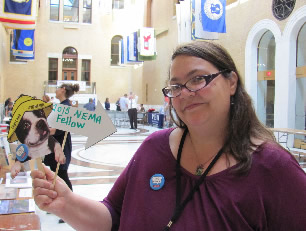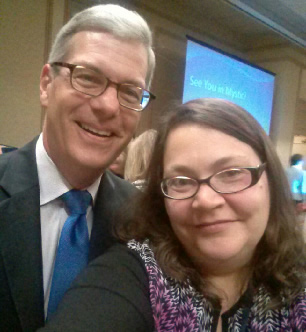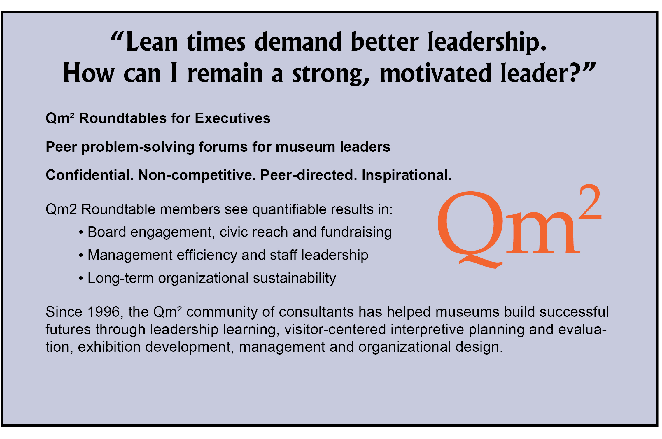NEMA Fellow Reports on the 2015 Conference
By Jenny Powers, Family Engagement Coordinator, Springfield Museums
Jenny Powers is the 2015/16 NEMA Fellow. As part of the fellowship Jenny is writing a series of articles for the NEMA community. Here are her reflections on the most recent conference.

Museums must be advocates for social justice. We must give more to interns than they give to us. Visitors bring as much to us as we give to them. We must be prepared to offer programs to visitors at every stage of their life. I am exhilarated and exhausted, and I can’t wait to get back to work. These are some of the things I took away from the 2015 NEMA conference.
I got to spend just one day at the 2014 NEMA conference in Boston/Cambridge. Riding to the conference from Springfield, Massachusetts, and back with an experienced coworker, she had been able to help me set expectations for the day and we were able to debrief immediately on the way home. I left so energized and excited that I felt I must find a way to attend the entire conference in 2015.
I was honored and felt very lucky to be chosen as the 2015 NEMA Fellowship recipient. As the Art Discovery Center Coordinator at Springfield Museums, I poured over the available sessions and activities, having to make careful selections and re-selecting several times. The Art Discovery Center is a drop-in area for families, full of interactive hands-on activities. A week before I left, I was offered the position of Family Engagement Coordinator and had to re-select again to make sure I was learning as much as I could that would apply to my new job.
I was excited to network and get to know all kinds of people doing all different kinds of jobs in museums across New England. Without a familiar face with me this time, and even as an extrovert, I quickly found this tiring. So many new and interesting people, working at so many different kinds of places, and I started to have trouble remembering all their names and institutions. Luckily, at the opening night Networking About Networking event, Dan Yaeger gave us good advice. He said when you meet someone, use his or her name in conversation, and multiple times if possible. I took this to heart and it helped. I also started taking selfies with lots of different people and posting them on my blog so that I could look back to connect a name a face if necessary.

NEMA Executive Director Dan Yaeger and Jenny Powers.
At Springfield Museums, I work with about twenty-four interns a year, ranging from high school to post graduates. I have made drastic changes to the internship program in the last two years so I was most excited to attend the Think Tank, Redefining the Internship. What stands out most for me from this session is how challenging it is for anyone to take an unpaid internship. Since there is no standardization from institution to institution, and every museum structures their internships differently, finding the right fit is the first and biggest obstacle. All of the interns I work with have school, jobs, or children, and most have at least two of those three responsibilities. The internships in the Art Discovery Center are a very small commitment of one shift per week. Interns must commit to a set day and work that day every week for about a semester. I learned from the Think Tank that this is a very unusual situation and that many of the interns at other institutions are expected to work full time, and still for no pay.
These requirements would eliminate nearly 100% of the candidates at Springfield Museums. Springfield is a depressed area with a high poverty rate. How could an area like this help their community rise up if no one could afford to gain professional experience? Many of the participants in the Think Tank shared stories of having supervisors that were not trained to manage interns, a lack of meaningful work during their internship, unclear job responsibilities, and a lack of feedback from supervisors. We all realize that museum work can be challenging, and that we all need to be flexible and able to adapt, and we did come up with some solutions that all of us could take back and implement right away. First, a seemingly easy idea, is making sure that internship descriptions are accurate. Clear expectations are a must, and consistent communication including feedback, are also essential to a successful experience. Although most participants seemed to prefer project-based over immersive internships, the chance for a range of experiences is something we all agreed was essential as well.
Unpaid internships are a social justice issue. Is it fair to expect people, especially young people, to give up other livelihood in order to gain experience in this field? Under federal law an unpaid internship must be for the benefit of the intern, and we must derive no immediate advantages, and on occasions, our operations may be impeded. Interns must also be closely supervised. Not following these rules is as unethical as it is illegal. We cannot let the future staff of museums start their careers this way. Laura Lott, president of AAM said, “We can make the world a more just and beautiful place,” and, “Museums are essential to the public good.” There are no excuses; every museum must find a way to make sure that internships are a public service of benefit to their community.
I attended sessions on a variety of other topics, but all ultimately came down to engaging visitors at museums. I was so impressed and humbled by the creative work that so many people are doing across New England! From sessions called Supporting Curricular Standards by Inspiring Creativity to Making Meaning of Museum Objects Through Storytelling and from Exploring Participatory Experiences to Graphic Design 101, the word I heard the most was participation.
We don’t want to force people to visit our museums and participate. It is our job to create programs that are accessible to a wide range of visitors, from birth to advanced age. It is our job to make sure that visitors know that they are wanted, and valued, and that we are in this together. We need to make sure that every visitor feels welcomed and that they belong, and not only accept diversity, but plan programs that promote it in our communities as well.
One of my favorite sessions was A Multisensory and Performance Art Approach to Engaging Underserved Museum Visitors. The presenters spoke about how emotional memory lasts far beyond the content we provide. Having a positive emotional experience is so much more likely to engage visitors and bring them back to museums. That visitor experiences should be visitor focused seems obvious on one hand, but when we get excited about how much we have to give, it can be difficult to keep in mind that the visitor needs are more important than our own.
From this, and many other sessions, I heard about the idea of, “taking smaller bites.” Vicki Oman from Plimoth Plantation talked about gaps in visitors knowledge, and how much easier the smaller ones are to fill than the huge ones. Starting closer to our visitors own knowledge makes it easier for them to connect with our collections and build that base. This is also an argument for seeing less of one museum at a time. Instead of comprehensive tours, more information on a narrow topic can be more memorable and inspire visitors to return.
Despite the wonderful experience, the one issue at NEMA 2015 that surprised and saddened me was the amount of sexism I experienced first-hand at a female dominated conference. The keynote speaker didn’t see a problem with only using male pronouns throughout his book and his keynote speech. A vendor in the exhibit hall called out, “Hey girls!,” while I was walking along with another museum professional. When I stopped and said, “Women?!,” he defended himself calling us this because he has daughters. Lastly, when I referred to my boss, who was back in Springfield, nearly everyone I talked to assumed my manager was a man. Not only is my boss actually female, but at a conference so heavily attended by women in upper level management positions, I am saddened that anyone would assume otherwise.
As someone who supervises interns, this troubles me deeply. As my former interns rise through the ranks of museum professionals and go out to their first conferences, I do not want them to have similar experiences. I do not want assumptions to be made about them and I do not want them to be held back by other peoples’ expectations. The most effective solution I can find to this problem, is that every single one of us needs to say something every time we witness sexism. I do not think that in any of the cases I mentioned, a single person considers him or herself sexist and I don’t think they want to be. Only information and standing up for ourselves can stop this epidemic and improve the situation for those coming after us.
Being the 2015 NEMA Fellow was an enlightening, educational, and amazing experience. I left Portland excited about small changes I could implement at work right away, and ready to plan for the larger changes that could improve the museum. I want to thank all the presenters for opening my eyes and helping me to see things in different ways, and all the other attendees for the interesting, informative, and fun conversations we had on the side. I can’t wait to see all of you again at NEMA 2016!
